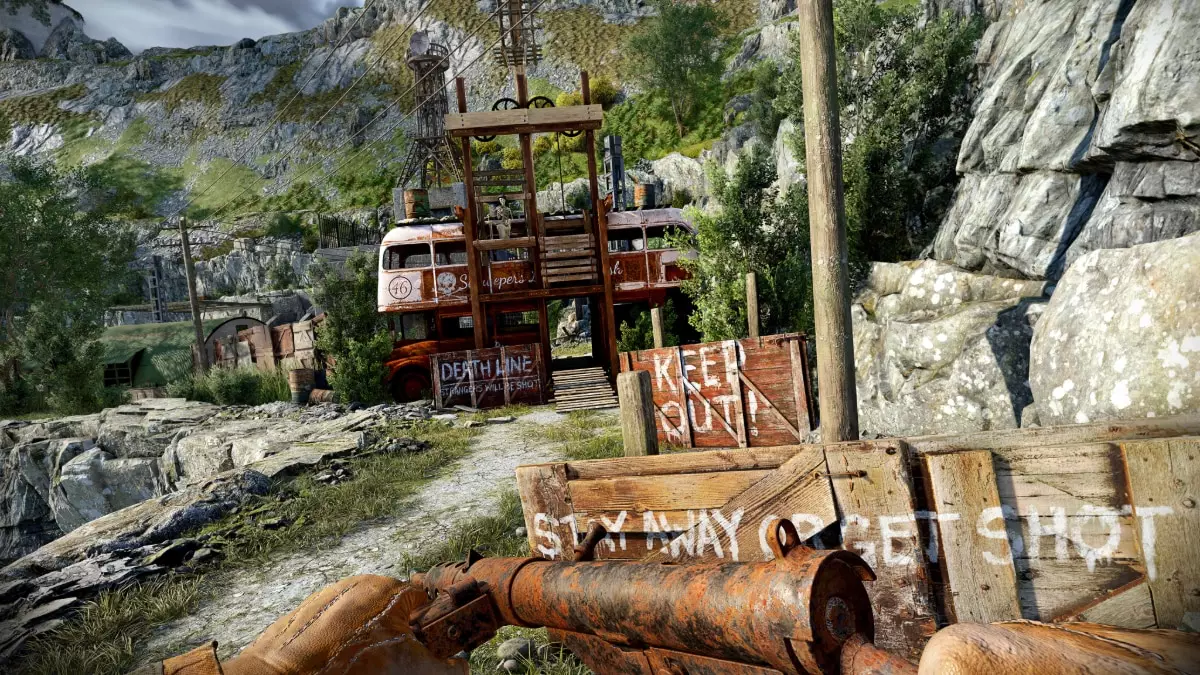In a landscape saturated with new gaming titles, Atomfall has risen to prominence, boasting impressive player engagement and a successful launch strategy. Released by Rebellion Developments across various platforms, including PC, PlayStation, and Xbox, Atomfall quickly garnered over two million players—an extraordinary feat for an independent studio. Unlike countless titles relegated to obscurity, Atomfall managed to capture the spotlight, largely thanks to its timely debut on Microsoft’s Game Pass, an initiative that propelled it into the hands of eager gamers across the globe.
Rebellion’s CEO, Jason Kingsley, has candidly shared his perspective on the pivotal role Game Pass played in reaching wider audiences. In his eye, it’s not merely a marketing strategy; it’s a lifeline for independent developers searching for an avenue to break through the noise. The trickle-down effect of a strong launch strategy has become a tangible case study in how subscription services can redefine the gaming market. Rather than traditional lump-sum purchases, the service fosters a sense of community and discovery—one that can lead to exponential word-of-mouth marketing.
The Power of Partnerships
Kingsley’s remarks about Microsoft underscore an essential truth in today’s gaming ecosystem: partnerships can be the lifeblood of an indie studio’s survival. When Rebellion pinned its hopes on Game Pass, it wasn’t just a roll of the dice; it was a calculated move designed to exploit the vast reach of Microsoft’s infrastructure. This collaboration appears symbiotic—I would argue it’s a shining example of how independent studios can employ strategic alliances to leapfrog over financial constraints typically faced by smaller developers. Atomfall’s success proves that in this current era, it’s not just about making games, but about making alliances that elevate those games in the marketplace.
Such partnerships are often viewed with skepticism, especially considering the historical backdrop of game subscription services focusing solely on AAA titles. However, with Atomfall, the dynamics shifted, showcasing how a new IP can flourish outside the conventional model. Both Rebellion and Microsoft seem to have benefited mutually, demonstrating that the avant-garde approach can yield lucrative outcomes.
A New Era for Indie Games
The emergence of Atomfall amid the clutter of games highlights an essential turning point for the indie gaming sector. This is not merely a small title that lucked out; it is a wake-up call for an industry previously dominated by the heavyweights. Notably, Kingsley indicated that the game’s success exceeded initial projections, suggesting that innovation, when paired with smart financial strategies, can lead to unexpected success—even for the underdogs of the gaming realm. It’s a bittersweet commentary on the industry’s existing biases against indie developers and the challenges they face in gaining traction in an overcrowded marketplace.
Initial impressions of Atomfall highlight its unique blend of survival mechanics and a post-apocalyptic backdrop inspired by historical events, notably the Windscale nuclear incident of the 1950s. This intertwining of fiction with a historical narrative allows Atomfall to stand out in a sea of generic gameplay. While the game has drawn comparisons to esteemed franchises like Fallout, its distinctive storytelling approach showcases the potential of indie games to tackle complex themes and deliver immersive experiences.
The Future of Atomfall and Indie Development
Kingsley’s allusions to an Atomfall sequel indicate a promising future for this budding franchise. The willingness to invest further resources into a project that has demonstrated such immense popularity speaks volumes about Rebellion’s strategic mindset. This is a pivotal moment, as it demonstrates the capacity for an indie studio to scale up through a successful venture, rather than simply seeking out quick profits or shallow expansions.
As Atomfall continues to capture the hearts of its audience, the question looms: can Rebellion sustain its momentum? The gaming industry is notorious for rapid shifts in trends and player interests, but if Atomfall maintains its trajectory—enhanced by community-driven engagement and the effective utilization of platforms like Game Pass—it may well pave the way for other indie developers eager to carve their niche in the gaming galaxy.
In the end, Atomfall’s theatre of survival is more than just a game; it symbolizes a cultural shift toward embracing innovation and inclusivity in gaming. As players flock to try this independent gem, it is clear that the title not only meets expectations but redefines what success looks like in an industry that is often dismissive of small-scale projects.


Leave a Reply